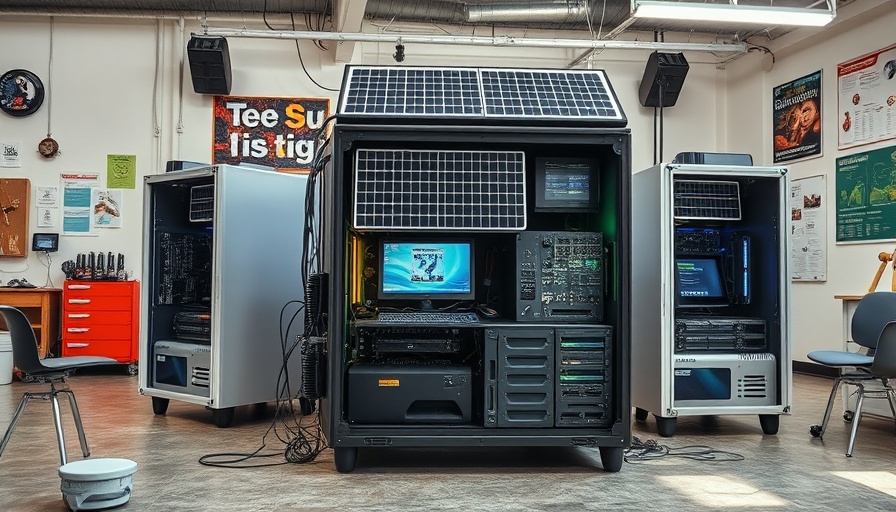
Innovative Thinking Meets E-Waste Challenges
The initiative known as the Technology Innovation Dumpster (ÇİT) is paving new paths in education and sustainability through its innovative approach to electronic waste (e-waste) management. In an era where technological advancements have outpaced our awareness of waste, ÇİT presents an educational model that encourages students to see technological waste not as a burden, but as a treasure trove of potential.
Understanding the ÇİT Project Goals
At its core, the ÇİT project aims to instill awareness among students that e-waste is a resource for creativity and innovation. By leveraging discarded technological devices, students engage in hands-on activities that cultivate their understanding of engineering principles. The objectives of the project include not just a technical education, but also fostering a mindset geared towards sustainability. This aligns well with global efforts observed in cities like San Francisco and Amsterdam, where waste management is being revolutionized to prioritize recycling and reusing materials.
Building a Future-Oriented Learning Environment
The ÇİT project provides an environment where students dismantle and reassemble end-of-life electronic devices. This practical application not only demystifies technology but also encourages critical thinking and problem-solving skills. By using tools and receiving support from local educational bodies, students learn about the components of technological tools, which mirrors emerging practices in cities that emphasize smart waste solutions, such as intelligent waste bins and AI-powered recycling robots.
Parallels to Global Sustainability Efforts
Much like the automated e-waste sorting technologies gaining traction across the globe, the ÇİT project works towards high efficiency in waste management. For instance, cities are increasingly exploring eco-friendly programs that allow corporations and citizens alike to return e-waste for proper recycling. Similarly, the ÇİT initiative not only educates but actively contributes to the Zero Waste Project, assuring that students understand their role in combating excess waste.
Empowering Future Innovators
By immersing students in the process of innovation, the ÇİT project helps them recognize their potential as future engineers and inventors. This early engagement can inspire students to pursue careers in technology and environmental science, leading to advancements in areas like automated sorting and eco-friendly recycling practices highlighted in recent studies on electronic waste management.
A Community Effort Towards Change
The success of the ÇİT initiative is rooted in community collaboration. Contributions from teachers, parents, and local organizations transform theoretical knowledge into tangible skills. This collective effort echoes the importance of community engagement present in sustainable urban models worldwide where local populations play significant roles in implementing innovative waste management solutions.
As schools adopt initiatives similar to ÇİT, the potential impact on future generations could be profound—arming them with the knowledge and skills to address the escalating challenges of e-waste while fostering a new culture of resourcefulness and sustainability.
 Add Row
Add Row  Add
Add 




 Add Row
Add Row  Add
Add 

Write A Comment